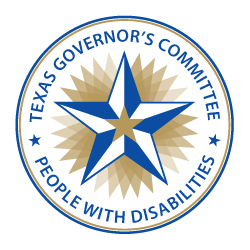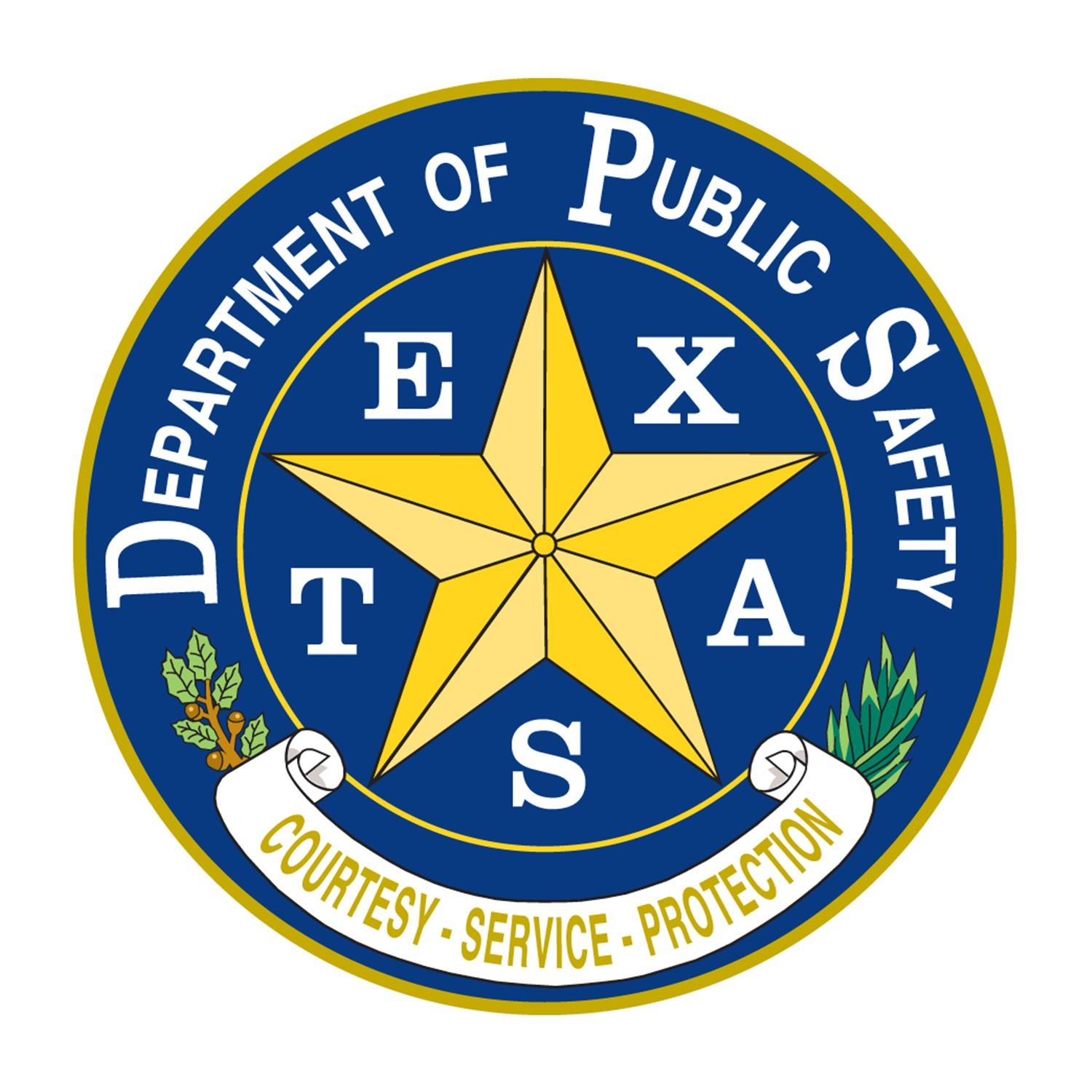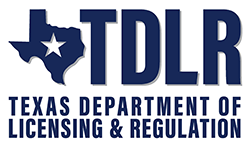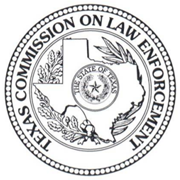In this article:
This pioneering program in Texas focuses on improving police interactions with disabled drivers who have special communication needs. Texans now have the option to directly disclose their “communication disability” on the front of their driver’s license or state ID, or when registering a vehicle at the DMV, so trained officers can be made aware of individuals who may be slow to respond or who are hearing impaired.
Texas Public School Requirements
Beginning September 1, 2023, Texas public schools must provide information about the Texas Impaired Driving Program to students who:
This information must be provided annually to each student age 16 or older until graduation or their 21st birthday. Information about the Texas impaired driving program must also be provided to the parents or guardians of eligible students. This information may be provided along with transition planning materials provided by the school.
The information on this page is available for schools to share with students and parents. Additionally, the Texas Transition and Employment Guide will be updated to include information about the Texas Impaired Driving Program that applies to students receiving special education services in Texas public schools.
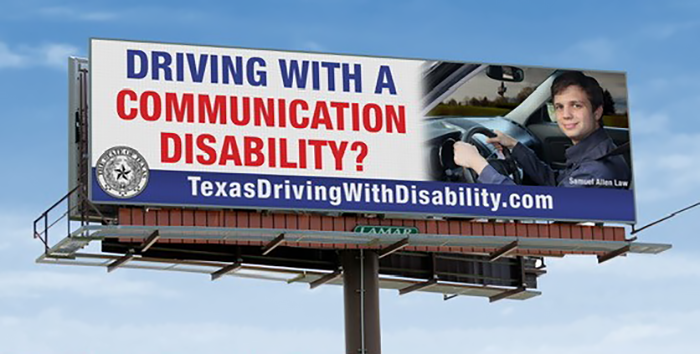
Medically, each disorder falls into its own category, but for law enforcement coding and training purposes, the term “communication disorder” is divided into two groups.
Group 1
Think of this group as slow. Like a computer that takes a moment to load content. Allow the individual time to respond. This group includes:
Mild intellectual disability Post-traumatic stress disorder Speech disorders (mutism, stuttering, speech delay aphasia, spasmodic dysphonia)
Group 2
Think of this group as people who speak a different language. They don’t have an intellectual disability, but they communicate differently than you do. This group includes:
Driver’s License and State ID Communication Disorders
Impaired communication with police officers is an optional indicator offered by the Texas Department of Public Safety (DPS) on Texas ID and Driver’s Licenses for people who want to alert police that they may have a communication problem. Have your doctor fill out a DL-101 form and submit it to your driver’s license office. The front of the card will say “impaired communication.”
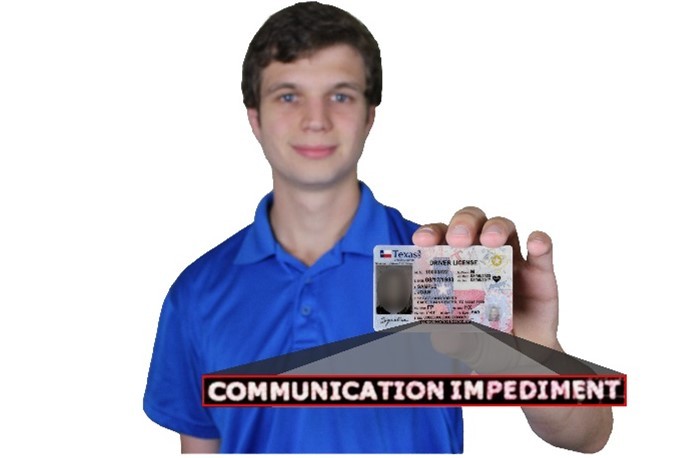
Communication barriers in vehicle registration
The Texas Law Enforcement Communications System (TLETS) provides authorized law enforcement officers with query access to the Texas Department of Transportation (DMV) registration system. Return transmission of vehicle and driver information is done through authorized TLETS terminals. When registering a vehicle through the Texas Department of Transportation, you have the option to disclose a communication disability/impairment. Any communication disability or hearing impairment/loss is privately entered into TLETS to alert officers to the need for communication prior to approaching a vehicle in a roadside stop situation. There are two forms available:
Form VTR-215 Hearing Impaired Driver Awareness (with special license plate)
Form VTR-216 Communication Disability (No Special License Plate)
Your approved medical provider will need to complete the form you request, and you will present the completed form when you register or renew your vehicle at the Texas DMV.
Driver Education Options
The Texas Department of Licensing and Regulation (TDLR) oversees driver education and safety programs. To educate student drivers, Texas driver education and driving safety providers must update their curricula to include information about the Texas impaired driving program.
TDLR also offers driver education curriculum in American Sign Language (ASL) and captioned language.
Individuals who are deaf or hard of hearing may request that their driver’s education school use this curriculum instead. If a driver’s education school wishes to use its own curriculum, the school must provide the requested ASL interpretation or captioning as a reasonable accommodation.
Texas Impaired Driving Booklet (Coming Soon)
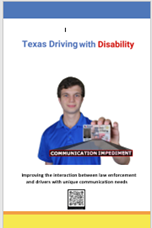
Texas Impaired Driving Tri-Fold Brochure (English/Spanish)
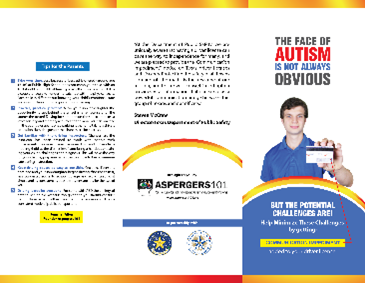
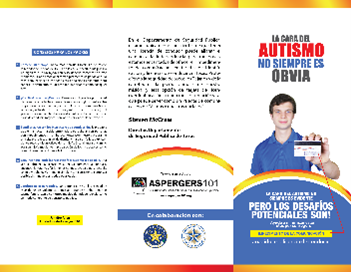
Texas Impaired Driving Poster (English/Spanish)
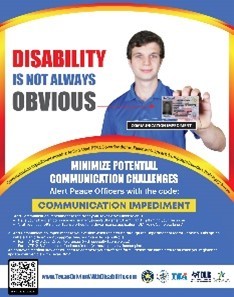
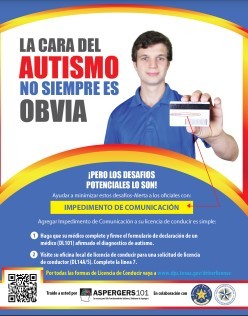
As part of an effort to educate all law enforcement agencies in Texas on how to interact with people with different communication needs, an online course that officers can use in their continuing education hours is now being offered on the Texas Commission on Law Enforcement (TCOLE) website.
TCOLE Course 4055: Understanding Police Officer Communication Disorders (Online Continuing Education Training for Law Enforcement Officers)
TCOLE Course 7887: Interacting with Drivers Who Are Hearing Impaired (Required Training for Law Enforcement Officers)
The link is the posted curriculum for trainers. For more information on how to register, log on to the Texas State Law Enforcement Commission or contact the Training Academy.
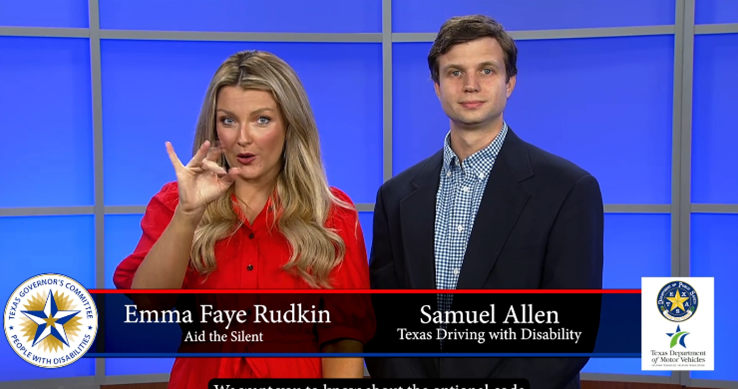
Public service information
https://www.youtube.com/watch?v=6VfAnfrpwXE
Autism Education Act
https://www.police1.com/patrol-issues/articles/3-steps-toward-understanding-autism-challenges-during-traffic-stops-N5X7IEWAVDHg8VlC/
https://www.kxxv.com/hometown/texas/texas-passes-law-to-help-those-driving-with-a-communication-impediment
https://www.kens5.com/article/news/new-law-to-help-drivers-with-communication-challenges/273-83da1a0c-d4e4-471b-aabf-cd36820a291c
https://spectrumlocalnews.com/tx/austin/news/2019/09/05/samuel-allen-law-protects-drivers-with-communication-disorders-
https://www.ktsm.com/news/drivers-with-autism-encouraged-to-put-extra-info-on-license/
This pioneering program in Texas focuses on improving police interactions with drivers who are communication impaired (or hearing impaired) by having the option code “Communication Impaired” written directly on the Texas driver’s license, the front of the state ID, or when registering a vehicle through the DMV. The program was created by Texas resident Jennifer Allen, who saw a need when her son Samuel reached driving age. Together, the two signed the program into law. Today, the program is implemented through the Texas Governor’s Commission on People with Disabilities.

Texas Governor’s Press Office: Jennifer Allen Announces the Samuel Allen Act
Legislative References
Senate Bill 2304 (88th Legislative Session) – Relates to regulating driver education and driver safety courses and providing information about the Texas Impaired Driving Program to students in certain public schools. Senate Bill 976 (86th Legislative Session) – Relates to informing police officers through displays related to vehicle registrations of persons with medical conditions or disabilities that may prevent effective communication. House Bill 1434 (85th Legislative Session) – Relates to displaying certain informational materials and videos in driver license offices.
